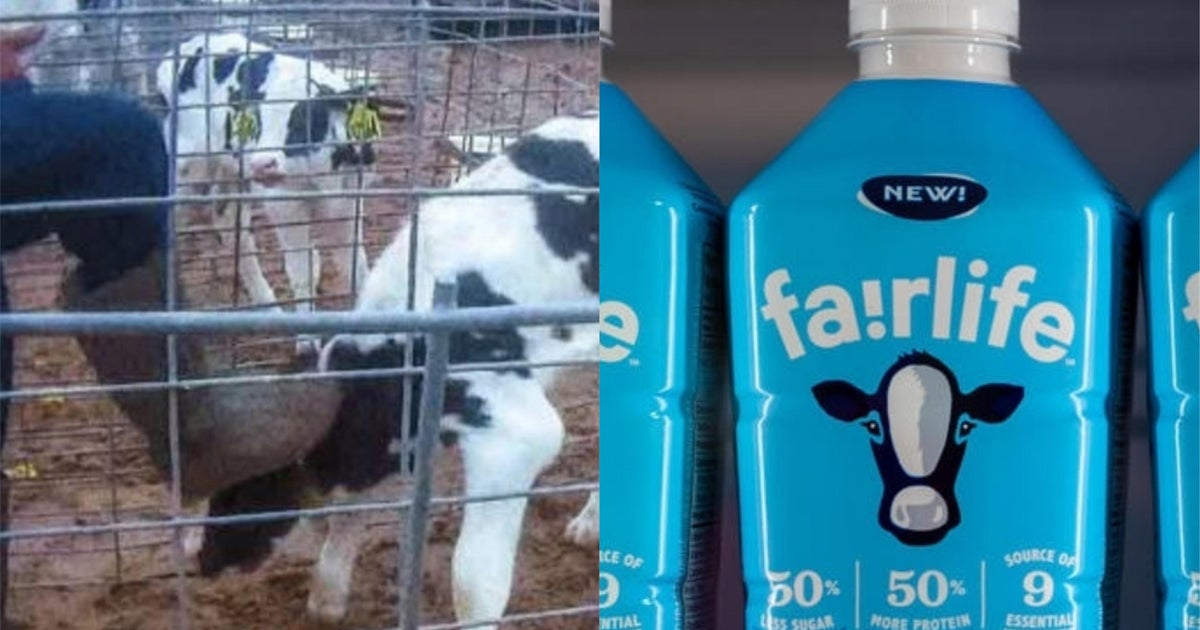In the realm of dairy production, ethical considerations often intertwine with the choices consumers make at the grocery store. Fairlife Milk, a popular brand known for its ultrafiltered dairy products, has faced scrutiny following investigative reports that spotlighted animal welfare concerns. These revelations have sparked profound questions about the true nature of animal treatment within the dairy industry and compelled many to reconsider their purchasing habits.
The investigation commenced when disturbing footage emerged, depicting egregious acts of cruelty occurring behind the closed doors of Fair Oaks Farms, a primary supplier of Fairlife Milk. The images spoke volumes, revealing instances of abuse that were not only shocking but also difficult to fathom. The world could no longer turn a blind eye. The footage captured farm workers taunting and mistreating dairy cows, veering far from the ethical standards that consumers often assume underpin the products they buy.
As intrigued minds delved deeper, questions began to crystallize: How could such atrocious actions occur in a facility that claimed to prioritize the well-being of its animals? The apparent disconnect between Fairlife’s marketing—emphasizing quality and care—and the haunting reality exposed by the investigation, highlighted a glaring inconsistency. It prompted a vibrant dialogue among consumers regarding the ethical implications of their dietary choices.
The narrative surrounding Fairlife and Fair Oaks Farms is not merely isolated; it reflects a pervasive pattern in the broader agricultural landscape. Many dairy farms exhibit similar ethical lapses, often prioritizing profit margins over the humane treatment of animals. This systemic issue challenges consumers to contemplate the implications of their preferences, as well as the authenticity of industry assurances that animals are well cared for. As the investigation unfolded, it became abundantly clear that the veracity of such claims warrants meticulous scrutiny.
The response from Fairlife and its parent company, Coca-Cola, was swift in the wake of the accusations. They pronounced zero tolerance toward animal cruelty and promised deeper scrutiny into their supply chain practices. However, the skepticism lingers. Corporate proclamations frequently serve as a band-aid rather than a solution, leaving many to ponder whether assurances translate to real change or if they are merely superficial gestures to placate a concerned public.
Amidst this turbulence, consumers face a formidable conundrum: purchasing decisions are laden with moral implications, and the stakes are undeniably high. The ethical dilemma extends beyond just the cow in question. It encapsulates a broader philosophical reflection on the relationship humans nurture with animals. When faced with the choice between convenience and compassion, many find themselves wrestling with their values.
The dialogues ignited by the Fairlife controversy are reverberating across social media platforms and in community forums. Animal rights activists are utilizing this opportunity to galvanize support for comprehensive changes across the dairy farming spectrum. Grassroots movements are gaining momentum, urging transparency and accountability while advocating for humane treatment methodologies that respect the lives of these sentient beings.
Moreover, this situation has reignited discussions around plant-based alternatives. As more consumers explore vegan and dairy-free products, a seismic shift in purchasing behavior is emerging. The transparency often associated with plant-based brands resonates with consumers who are increasingly conscious of ethical sourcing. This paradigm shift reinforces a growing demand for products cultivated and harvested with a sense of responsibility, echoing the sentiments of countless individuals who choose to embrace a lifestyle aligned with their convictions.
Education plays a pivotal role as well. As consumers become more aware of the realities underpinning the dairy industry, the awareness impels them to engage in mindful consumption. Informative campaigns can serve to educate the public regarding ethical sourcing, farming practices, and the importance of supporting brands that prioritize animal welfare. Knowledge is power, and the more consumers are empowered to make informed decisions, the more they can influence market trends and advocate for change.
Ultimately, the Fairlife Milk saga serves as a catalyst, prompting critical discourse surrounding not only animal welfare but also the moral frameworks that guide individual choices. Every consumer can be a change agent, challenging the status quo and advocating for better practices within agricultural systems. The question remains: Is it enough to support brands that espouse ethical principles, or is a more profound intervention required?
To forge a future that values compassion over commodification, society must reckon with its choices and demand systemic reform. Animal cruelty, in any form, is unacceptable, and the time has come for consumers to wield their purchasing power as a tool for transformation. The delicate balance between consumption and ethical responsibility hangs in the balance; as these conversations proliferate, the hope is that a larger consciousness emerges—one that prioritizes the lives of all beings in the quest for sustenance.








